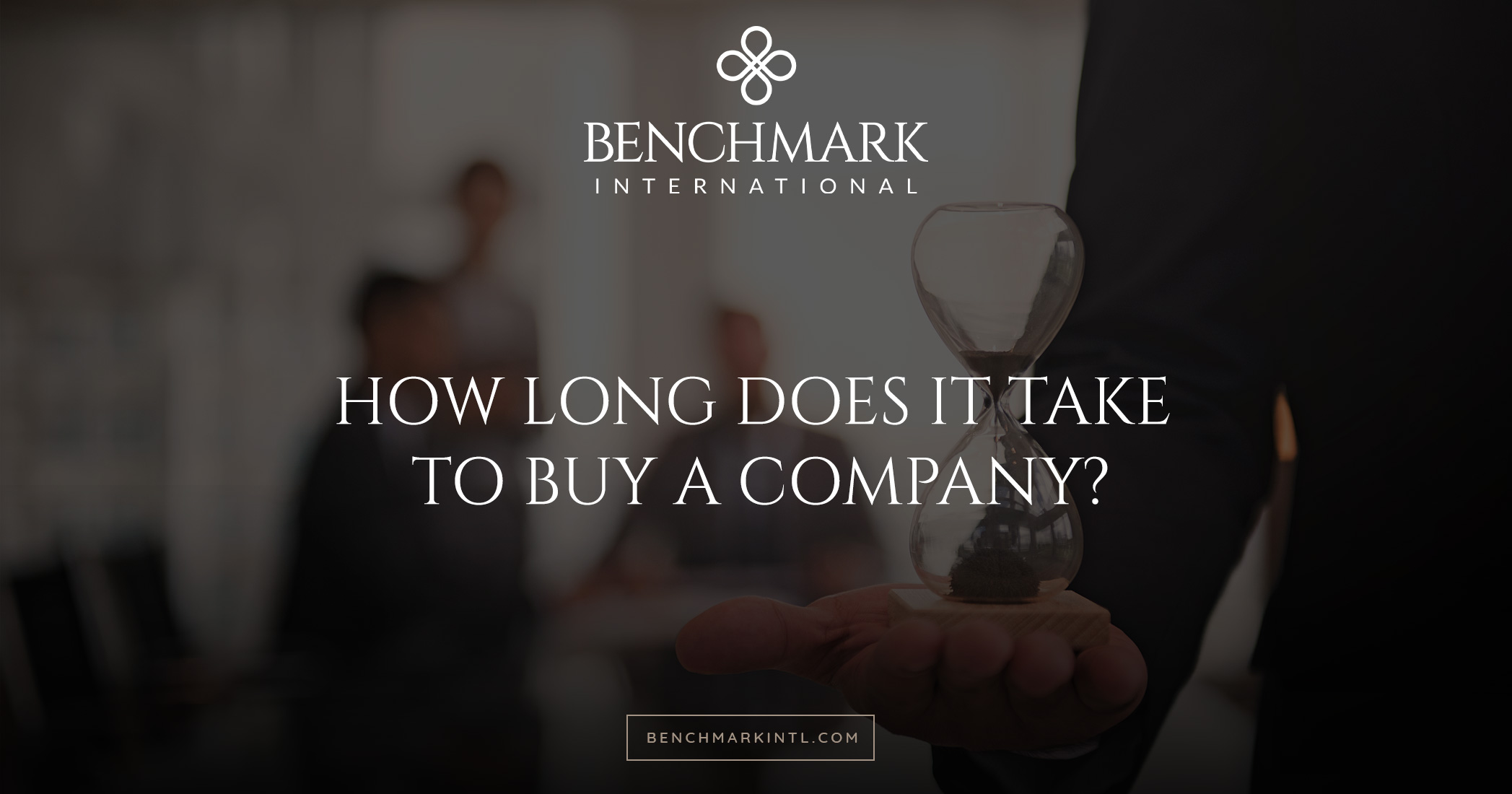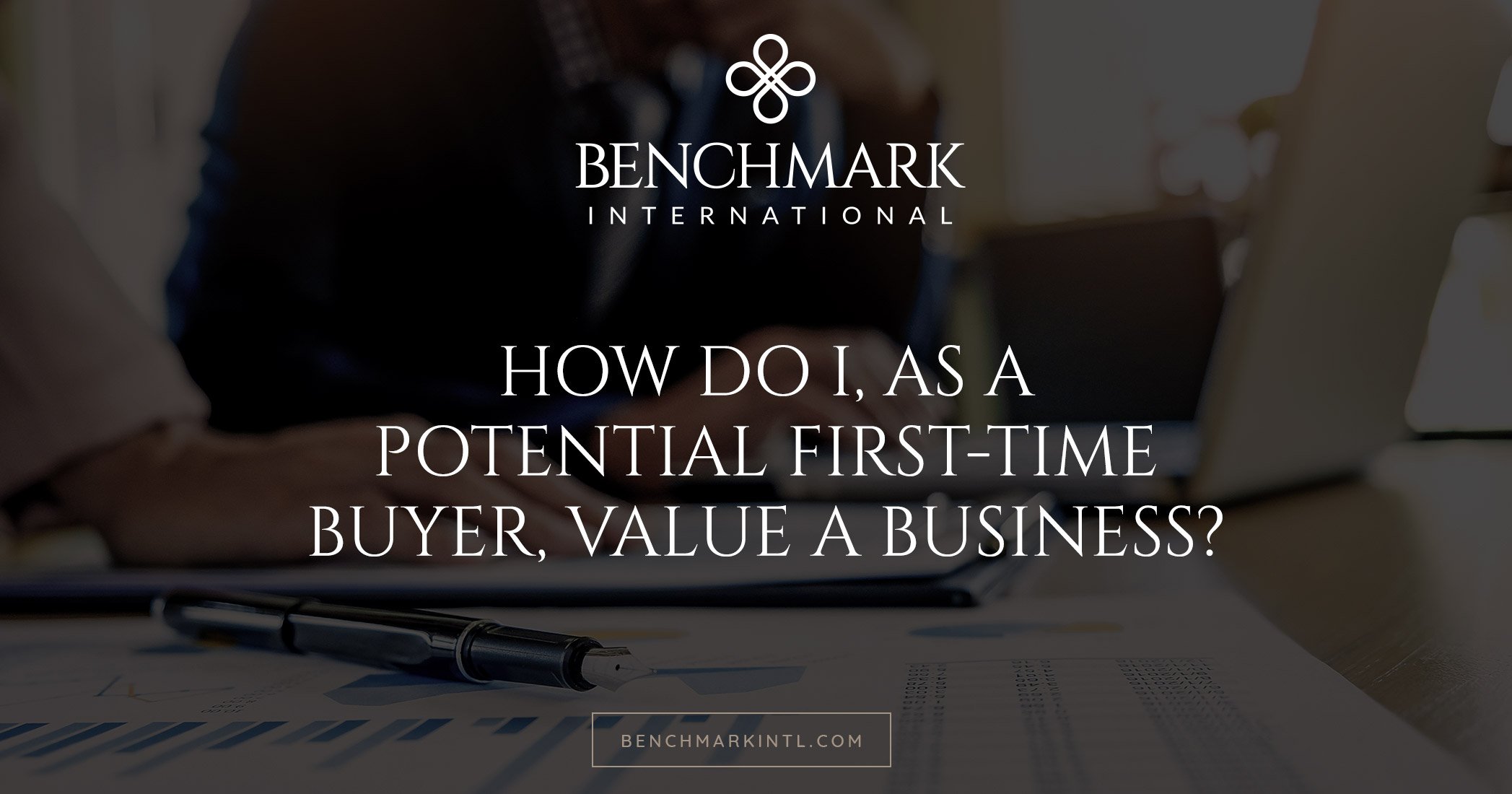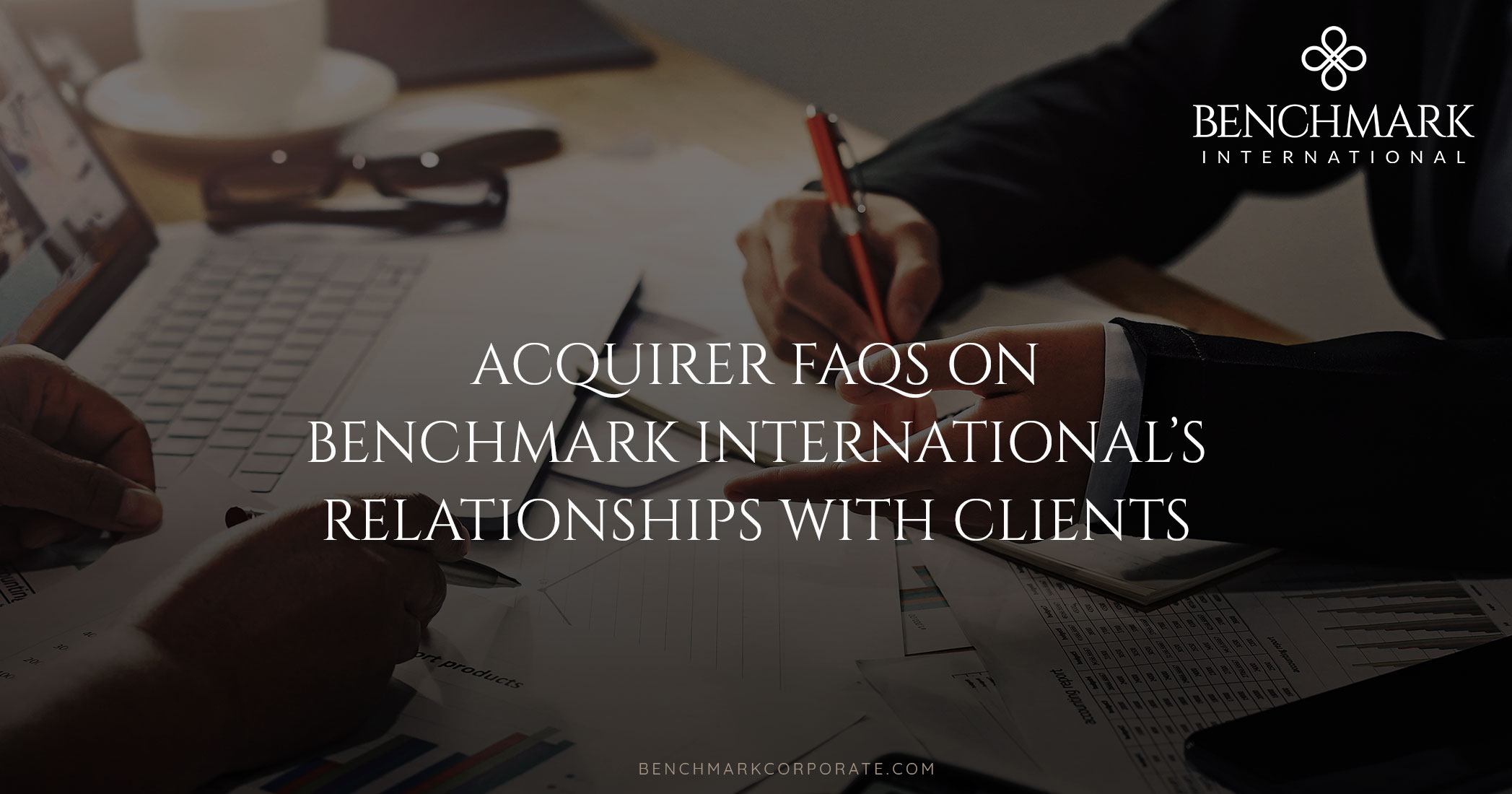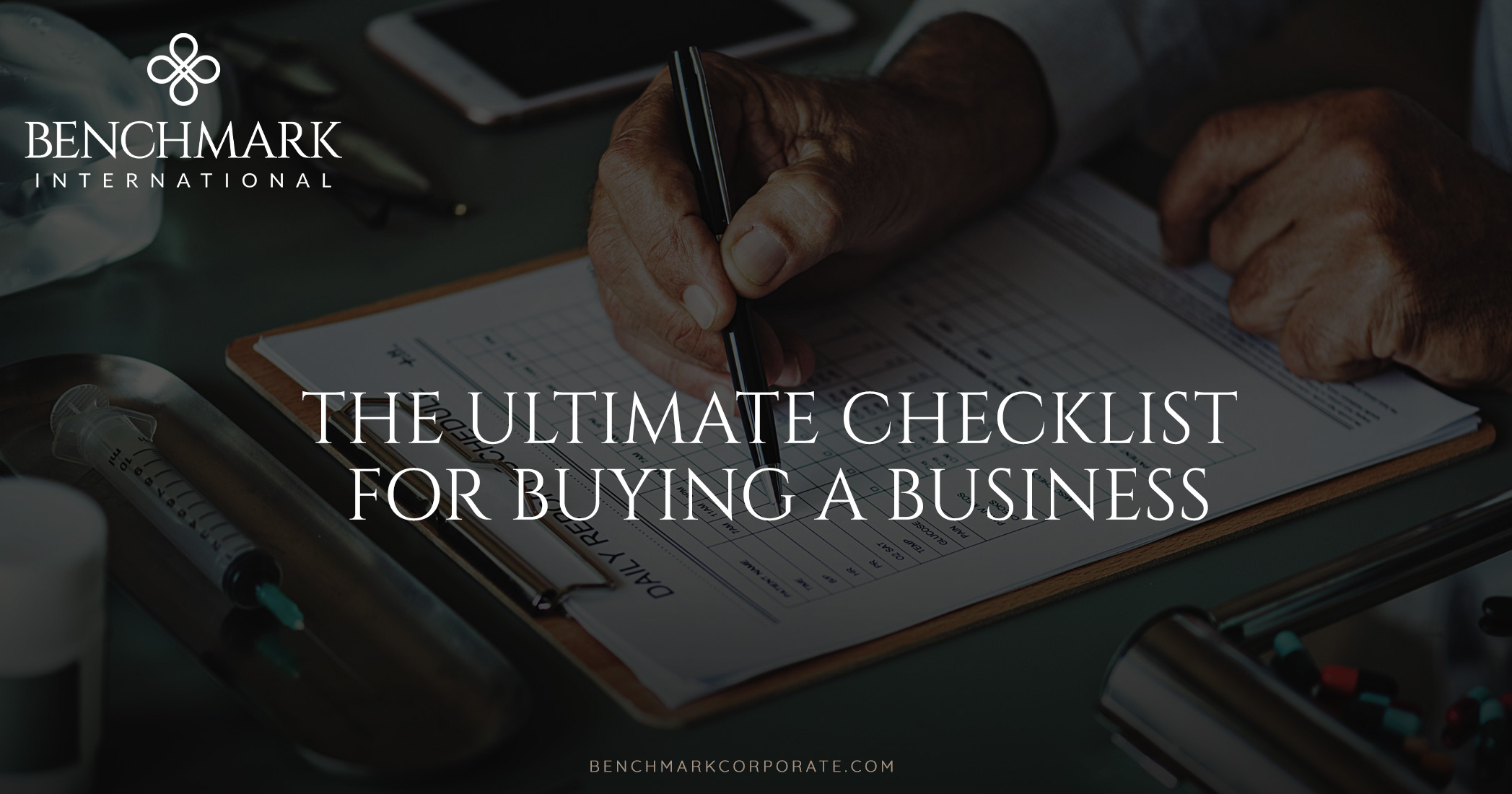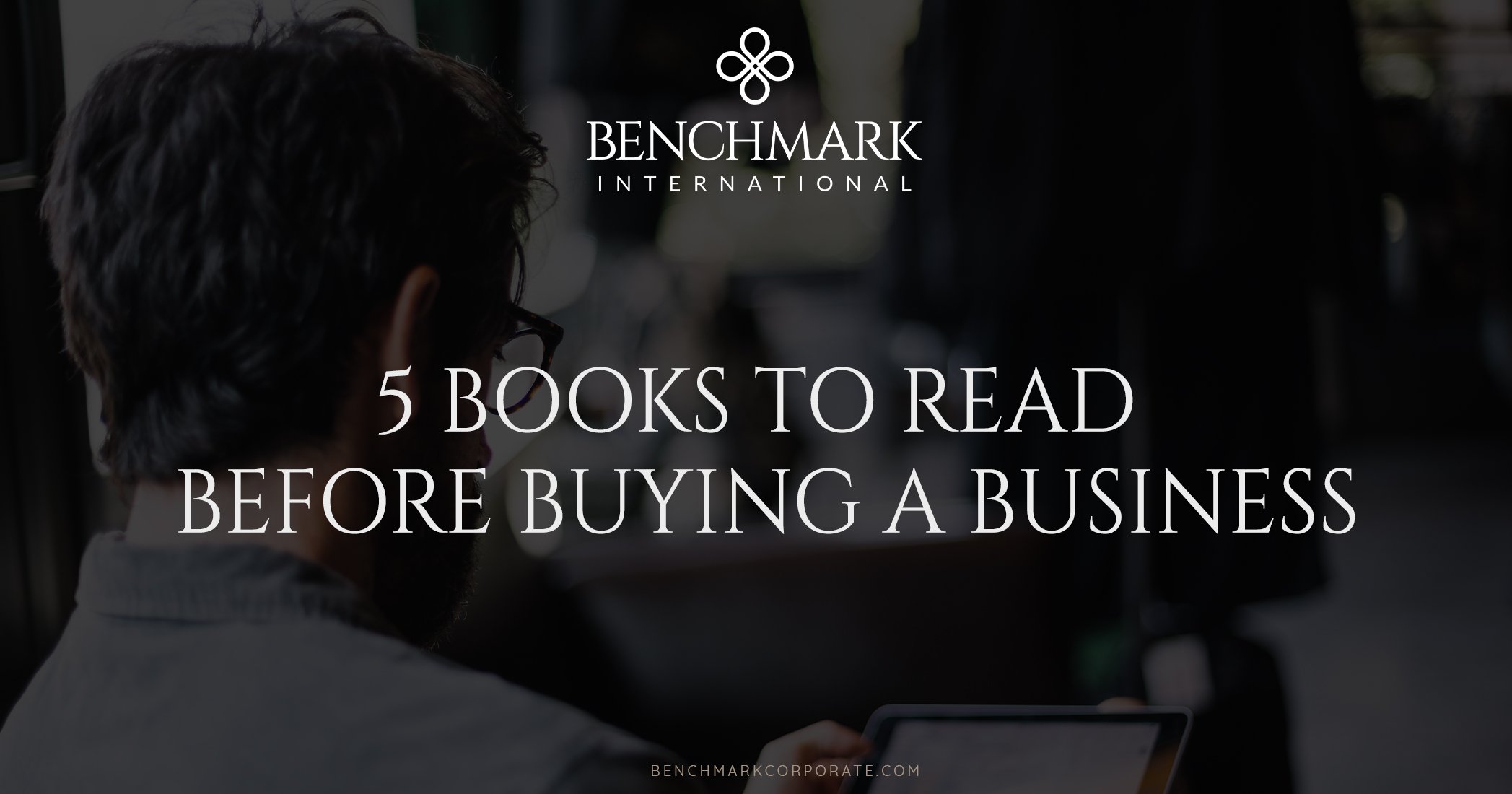The seller, Kaleidico, is made up of a team of experts that create and execute lead generation strategies for businesses in the mortgage lending and legal verticals. Their disciplined creative process has been generating leads since 2005.
READ MORE >>Archives
Benchmark International Successfully Facilitated the Transaction Between Kaleidico, LLC and a Private Individual
How COVID-19 Has Impacted Buyer Appetites In The Lower To Middle Market in South Africa
Benchmark International’s industry agnostic approach has proven to be informative during the Covid-19 epidemic. Interest in most of our client base has not declined and we are receiving queries from a wide range of parties.
Who are these interested parties and what is their investment approach? Analysing the data provides an interesting insight and some understanding of the shifting approach amongst these different categories of buyers.
• Listed Companies with their robust balance sheets are compelled to continue investing to meet forecast performance targets and stakeholder objectives. Generally, their acquisition mandates are governed by their investment committees where risk is a dominant factor. Turnaround and distressed assets are typically less attractive unless fulfilling a defined strategic need.
• Foreign Corporates from the Western to Eastern hemisphere still see South Africa as a stable foundation to expand through to Sub-Saharan Africa. South Africa’s well-developed IT and broadband infrastructure, advanced legal and banking sectors, safe aviation record, and access to a cost effective English-based labour pool facilitates business across the African continent. Themes of specific interest have emerged with a higher than normal volume of inbound enquiries for renewable energy, TMT, IT infrastructure and service as well as software businesses in particular.
• Private Equity in South Africa has grown and matured immensely over the last decade and remains one of the top acquirers/investee categories in the middle market for Benchmark international. Attached to the funds they raise are set acquisition criteria, investment limits and defined investment timelines where cash reserves must be spent. Similar to the listed segment, risk profiles are a key investment mandate consideration. During lockdown, Benchmark International has experienced a slight shift in the number of deals concluded towards those that have private equity components to them.
• Family Offices have shown resilience through the epidemic and continue to show interest in our opportunities. Their mandates are more flexible but are primarily based on where their strategic and financial input will maximise returns.
• Covid-19 has forced Large Private Companies to look at vertical integration of their supply chains. They also continue to seek to grow their market share through horizontal acquisitions and acquisitions of niche market opportunities.
• High Net Worth Individuals remain interested in growing their asset bases. They generally focus on opportunities in which they have existing investments and expertise and are able to achieve economies of scale.
READ MORE >>
Share this:
Stock Deals Versus Asset Deals
Many first-time buyers acquiring businesses in the United States are unsure of how to structure their offer in terms of a deal to buy the equity of the business (i.e., the stock, membership interests or partnership interests) or the assets of the business. The below FAQs should help point you in the right direction or at least allow you to have a meaningful conversation with your advisors.
Which do sellers view more favorably, stock deals or asset deals?
Typically, a seller’s initial reaction is to prefer a stock deal to an asset deal. They lean this direction because the first thing they have been told is, “Your tax bill will be smaller on a stock deal.” But there are actually a number of other significant considerations and the conventional wisdom on taxation is not always correct. Even still, when all is said and done and sellers are fully educated, they will almost always seek a stock deal as opposed to an asset deal.
How does this decision affect the definition of the “seller”?
In a stock deal, the owner of the business is the seller. He or she is selling her equity in the business. In an asset deal, the company itself is technically the seller. It is selling its assets to you.
Are the implications of securities laws different?
Yes, federal and state securities laws apply to a stock sale but do not typically apply to an asset sale. This benefits the buyer because of Rule 10b-5 issued by the Securities Exchange Commission (SEC) pursuant to the Securities Exchange Act of 1934. This regulation holds sellers responsible not only for material misstatements in the sale of securities but also material omissions in such sales. With asset deals, the default US rule of caveat emptor applies (unless the purchase agreement says otherwise). Buyers therefore gain a bit of extra protection with both civil and criminal penalties when acquiring via stock deal. However, it is important to remember that Rule 10b-5 applies to both the sale and the purchase of securities so the higher standard applies to both parties to the stock transaction.
What about the meat of the deal? Does it change?
Absolutely. In an asset deal, the buyer and seller must agree which specific assets are being acquired and which are not being acquired. Similarly, they must specify which liabilities are assumed by the buyer and which are left behind. In a stock deal, all assets owned by the company and all liabilities owed by the company move along with the sale unless specifically called out in the purchase agreement. We most often see asset deals in situations where the parties have agreed to leave all or almost all the liabilities behind and stock deals where the reverse is true.
What about those tax issues?
This is often the crux of the difference of opinion between buyer and seller. Though the issue can arise in an infinite number of variations, the most common occurs when the seller has used accelerated depreciation under the Internal Revenue Code and an asset deal occurs. In an asset deal, the parties must mutually agree on a purchase price allocation for tax purposes. All purchased assets are either specified items or “goodwill.” After the acquisition, the buyer can depreciate the value assigned to each specific item but not so with the goodwill. Depreciation creates a “tax shield” that results in the business kicking off more cash for the buyer in the years following the acquisition. The higher the percentage of the purchase price allocated to specific items, especially quickly depreciating items, the more appealing the asset deal is to the buyer and its future cash flows. But the IRS does not like buyers to depreciate assets that the seller already depreciated. In such an instance, the IRS would lose (and we all know that can’t happen). So the IRS has something called “recapture tax.” Suppose a seller bought a machine for $100 and depreciated it quickly down to $15 in its tax books. The result over that time was $85 of expenses that resulted in lower taxes. If the buyer and seller then ascribe a value of $100 back to that item, the buyer will—in future years—get to depreciate that item back to $15 again. “Not fair,” says the government. The recapture tax says, essentially, that if they agree to allocate $100 to that item, then the seller has to pay taxes for the “over-depreciation” it took while it owned the machine. So the buyer wants high value on the specified items and low value on the goodwill, a built-in conflict making deals harder to close.
This is but one of many tax issues that, almost always, tends to pit buyer against seller. Generally speaking though, for most circumstances, the tax issues in a stock deal result in significant reduction in the degree to which buyer and seller are diametrically opposed on tax issues.
Is a stock deal sometimes inevitable?
Yes, it is. When the company being sold has a large number of contracts that require the third parties’ consent to assignment, asset deals can be almost impossible to pull off. This is why larger deals are rarely structured as asset deals.
Most contracts include what is called an “assignment clause.” When a business sells its assets and assigns it liabilities to another company, its contracts are “assigned” and the assignment clause must be consulted. These clauses often require the consent of the counterparty prior to any assignment. Asset deals require assignments; stock deals do not. Obtaining the consent of 4,000 clients and five landlords can often push the buyer and seller to a stock deal regardless of any other consideration.
Some contracts also have “change of control clauses” that essentially state that any change of control of one party will be treated as an assignment. Thus, structuring as a stock sale is not a panacea to this consent issue.
Permits and licenses can pose similar restrictions on the parties, pushing them towards a stock deal. Similarly, in an asset deal, employees must be fired and rehired and must be tied into the buyer’s or new company’s benefits plans.
Is an asset deal sometimes inevitable?
Yes, it is. We see this happen when the company being sold has significant pending litigation, problems with its history, poor documentation, or other defects that make the equity interest in the business unmarketable. Though buying substantially all of the assets can lead to successor liability in some circumstances, asset deals provide fairly effective ways to take the desirable aspects of the business and leave the offensive pieces behind.
Which deal structure moves more quickly?
Stock deals tend to move much more quickly than asset deals for a number of reasons. Buyers can rely on the protection of securities laws so diligence tends to be less involved. Fewer third party consents are required. There are fewer tax issues to debate.
Author
Clinton Johnston
Managing Director
Benchmark International
T: +1 813 898 2350
E: Johnston@benchmarkintl.com
Share this:
How Long Should The Seller Stay On After The Sale
When an individual buys a business, it may be assumed that the buyer will be taking over the leadership of that company. In these cases, we most often see the seller stay on for no more than six months, and also in a part-time capacity. In the less common situation, in which the individual buyer is not coming in to run the business, we see sellers staying on for two to three years.
These time periods can involve full-time or part-time commitments. Also, they are typically graduated with the timing commitment. Most often, shifting from employment to consulting after a third or half of the total time commitment, whether that be six months or three years.
The seller should have created some expectations for the buyer at some point in the process, typically as early as when the seller provides the initial teaser to the buyer. However, we often see our clients change their views on this matter as their going-to-market process unfolds, and we see their views shift based on the comfort level they see with a potential buyer. Therefore, any written guidance should be confirmed in discussions before preparing an offer.
The more cooperation you are expecting to receive for the seller, the more capital you should be prepared to commit in exchange for that support. Sellers will not agree to provide employment or consulting services post-closing without compensation. In reality, for the buyer, this salary or consulting fee is actually just another deal cost. The necessary amount of money can be set aside from your pool of funds, set aside from transaction costs, or viewed as an additional portion of your purchase price (though it may not be best to characterize it as such to them since sellers may not see it that way). Remember that everyone values their time and wants to be compensated for it.
Some key factors to think about when coming up with your request/plans in this regard include:
- What key relationships will need to be turned over from the seller to you?
- How involved is the seller in the day-to-day operations, based on what you've seen working up to the offer, versus what you've been told?
- What experience do you have with running a business?
- How much experience do you have with this industry?
- How much assistance will the second tier of management be in those early days after the closing?
- What kind of relationships have you been able to build with the management team leading up to the offer?(Often, the answer is: none.)
- Is the business at a crucial junction in its growth, recovery, business cycle, or financial year?
- When the seller is not available, who will you turn to for assistance, and how will you solve the really difficult issues that may arise?
It never hurts to have this discussion with the seller prior to preparing an offer. It is a point that the seller will have a keen interest in, and coming to the correct result will be a key factor in the success of your new business.
Author
Clinton Johnston
Managing Director
Benchmark International
T: +1 813 898 2350
E: Johnston@benchmarkintl.com
Share this:
Why You Should Consider Buying A Business After Retirement
I had the opportunity to meet Linda and Frank this week at a networking event. What I heard from Linda was a reoccurring theme, “Frank has been driving me crazy since he retired in October. He needs to find a job.”
As M&A professionals, we often see people who retire from a career and decide that they can only play so much golf and need something to occupy their time. Buying an existing business is often a good solution because you can control the size of the company and have a flexible schedule to still enjoy traveling, golfing, and fishing.
Many businesses start from a passion that allows the owner to monetize one of their loves. For example, a restaurant is often founded by a person that’s passionate about cooking. Given the age of retirees, it’s often hard to start a business from scratch due to the limitation of our great resource, time. However, being able to purchase an existing business will provide the retiree with a continuous income and often allows the retiree to recoup their investment somewhat quicker than a startup.
Often, people fall into their career and then babies come so people stay in a stable career that provides for their family and family’s future. Once couples are empty nesters and have saved a nest egg for retirement, they can leave their stable career and chase their passion. We see retirees purchasing companies that they have an interest in learning but never had the opportunity to explore or know-how to get started. When an established business is purchased, the seller is available to be retained for a training period or as a consultant to help the purchaser learn the ins and outs of the business, beyond the due diligence period.
We often hear ‘use it or lose it.’ Many people are concerned that if they do not use their brain during retirement that they will become less sharp then they were during their prime career days. Retirees are seeking to buy businesses to keep various skills sharp. Whether that’s business, interpersonal, or specialized skills, owning a business will allow you to continue to challenge your mind.
A business is also an investment that can provide a good return depending on your goals. Many people prefer to bet on themselves instead of the stock market. Purchasing a business during retirement might cause a retiree to receive a return on their investment and cash flow for day-to-day needs.
Owning a business in retirement often helps with legacy planning. Many times, the business is a family business and there is a plan to pass the ownership on to the next generation. If this is one of your goals, purchasing a business in retirement might be a great option.
Author
Kendall Stafford
Managing Partner
Benchmark International
T: +1 512 347 2000
E: Stafford@BenchmarkIntl.com
Share this:
The Anatomy Of A Letter Of Intent
In the exciting and jargon filled word of mergers and acquisitions, you may often find reference being made to a letter of intent. But what exactly is a letter of intent (LOI)? Given the importance of an LOI it is crucial to answering this question, as well as other common questions we come across when dealing with LOIs.
What is an LOI?
The best way to describe an LOI is to think of it as a roadmap to a transaction. An LOI typically outlines the terms and conditions of an offer from a buyer to a seller. Expressed otherwise, an LOI is a written expression of a buyer’s intention to purchase the business of a seller and together with its terms to the seller indicates the buyer’s intention for the transaction.
What is the difference between a binding and non-binding LOI?
Unlike most contracts, the terms of an LOI are typically non-binding unless the parties agree that the whole or certain parts of an LOI are binding.
It is therefore important for sellers to remember that the terms contained in the LOI may not always be the terms that the buyer and the seller settle on (assuming, of course, the parties agree that the terms are not wholly or partially binding).
What are the common terms of an LOI?
While each LOI will be different, certain recurring themes appear. The most common ones are:
1. The parties
Although this seems obvious, it is critical that the correct parties are cited. Large corporations tend to have various subsidiaries and affiliated companies, and it is important for both parties to understand who exactly they are dealing with.
2. Structure of the transaction
This part of an LOI will describe how the transaction will be concluded. Is the transaction a purchase of the shares, a sale of assets, or a combination of both? Depending on the jurisdiction in which the transaction takes place, the structure will have to be carefully considered to ensure that parties are aware of how exactly ownership will change.
3. Consideration
The consideration is the payment that the seller will receive from the buyer. There are various ways in which to structure consideration. For example, the buyer can agree to pay a portion upfront with the remaining portion being paid subject to certain conditions being met once ownership changes.
4. Purchase price adjustments
Purchase price adjustments are used to adjust the purchase price for movements in working capital accounts (such as accounts receivable, inventory, and accounts payable) between the execution of the LOI and the transaction being finalised.
5. Conditions to closing
This part of the LOI will include the expectations and obligations of the buyer and seller, which are specific to them. For example, a buyer may need to get approval from regulatory bodies prior to concluding a transaction.
6. Confidentiality and non-disclosure clauses
Following the signature of an LOI, a buyer will typically receive sensitive information from a seller regarding its business. In addition, a seller may receive sensitive information from a buyer. It is crucial to agree on what information may be disclosed, to whom the information may be disclosed (such as accountants and legal counsels) and for what period the information needs to remain confidential.
7. Exclusivity
LOI’s typically include an exclusivity provision in terms of which the buyer asks the seller not to negotiate with other prospects for a pre-determined time period. As a seller, it is within your best interests to ensure that the exclusivity period is as short as necessary and that the terms are well defined.
What are the benefits of an LOI?
A properly drafted LOI will address key terms, remove ambiguity and thereby benefit both the buyer and the seller as it often reduces the amount of time and costs spent on revisiting negotiating.
Many business owners will only sell a business once in their lifetime. When dealing with such a monumental event, a little more preparation today is certainly worth added value tomorrow. Advice from seasoned professionals can provide you with savings in costs and time in helping you sell your business. At Benchmark International, we are proud to provide world-class mergers and acquisitions services.
Author
John Lousber
Transaction Associate
Benchmark International
T: +27 (0) 21 300 2055
E: loubser@benchmarkintl.com
Share this:
10 Things About Buying A Business You May Have Not Known
1. It’s Easier Than You Think
When acquiring a business nowadays, many think of this as a very strenuous and long-term process. Though it is a large investment of time and money, if you already run a successful small business, there are plenty of transferable skills.
2. Synergy Is Key
The growth of a business through acquisition is statistically faster, cheaper, and less risky than the other methods of expansion. It is of the utmost importance to ensure that the synergy is there, and when companies are choosing to acquire or merge, the desire is for the sum to be greater than its individual parts.
3. An Acquisition Can Expedite Growth In Your Current Business
Once an acquisition is done, you immediately have access to a multiplicity of new (to you) assets and employees. Many challenges come along with combining two businesses, but this can give your current company the ability to expand to new areas and cross-sell services to existing and newly acquired customers.
4. Understanding The Value Of The Employees And Management On-Hand
Many deals come with a staff who has vast knowledge about the company and the day-to-day functions of the business. It is important to get to know the staff and ensure they have the same intentions as you for the business and the direction it is trying to take.
5. The Current Owner Is Likely To Stay In The Picture
Though many of our clients are looking to retire, it is never as simple as handing the keys over. The owner built this business, and they know the ins and outs of the company. Usually, the owner signs a contract with the buyer to stay on for a required amount of time to help the new owners/managers learn the entire process. This also gives comfort to the buyer and customers about the change of ownership.
6. Cultural Fit
Selling a business can be a very emotional process for a seller. The company is their baby, and they want to ensure the success of the company and the continued employment of the employees. Commonly, money may not be the primary motivation of a seller. They are concerned with bringing in the right fit, expanding the company, and keeping true to its roots. A good buyer would acknowledge the importance of culture and seek to maintain the culture that was created and fostered by the previous owner.
7. Businesses Can Be Relocatable
When acquiring a business, buyers are concerned with the real estate associated with the company. Many believe that some companies should be relocated for better success geographically, or to a space that has more room for development. Most businesses can do so, which buyers may be unaware of, and most sellers will entertain the idea of selling the real estate, leasing it back, or allow the buyer to break the lease altogether.
8. Funding Options
It’s often easier to fund an existing business than a startup since it already has a track record. Banks tend to offer more loan types for individuals than for established businesses. Right now, banks are lending aggressively and looking to deploy capital due to interest rates being low.
9. Time Is Of The Essence
Due Diligence is a time consuming and arduous process, so it is key to operate with a sense of urgency. Doing so inspires confidence in the seller and helps maintain excitement on both sides for the eventual transaction. Failing to maintain a sense of urgency and stick within the prescribed timeline could result in deal fatigue, a delayed closing, or even the deal coming unraveled altogether. It’s imperative to move as swiftly as possible during due diligence.
10. Using An Intermediary
The process itself is easy, but selling a business takes time and effort that business owners do not always have the time for or knowledge on. Bringing on an investment banker or business broker/intermediary can help with finding financially capable prospects, negotiating the deal, and get the deal closed without anyone finding out until the deal is done.
Author
Jack Chilcutt
Deal Analyst
Benchmark International
T: +1 615 924 8950
E: Jchilcutt@BenchmarkIntl.com
Share this:
How Long Does It Take To Buy A Company?
How long after I learn of an opportunity will I be expected to submit an offer?
The timing that the offer is first seen does not really play a role in setting any timing expectations. The more precise question might be, “How long will I have to put in an offer before the opportunity is lost?” Some opportunities come to market with a fixed timeline leading to a formal auction process. In this case, you would be notified of that deadline and, if you found the teaser early in the process, you would have plenty of time. This is unless you came across it later on that same timeline. In other cases, and what is more often the case for businesses in the lower-middle markets, no timelines are set. A business may be on the market one day and gone the next. There really is no way to make a prediction.
How long does a business spend planning to go to market?
Some sell-side advisors spend months or even years “grooming” their clients for the market. They attempt to ensure all the low-hanging fruit in terms of improvements to profitability is addressed before you see the business. Benchmark International’s approach is different. Our pre-marketing work focuses on getting to know our client’s business and preparing the information you need to make an informed decision rather than guessing what improvements you would like to see and then encouraging our clients to spend money on projects that you may or may not value highly. Our clients work with us for two to three months on average before coming to market. We would like to shorten that time period but our clients are typically owner-operators and, as they say, “They already have a day job.”
After I see a teaser, express interest and sign an NDA, how long should I expect to wait for the next data dump?
The next round of data should come in the form of a Confidential Information Memorandum, also called a private placement memo, a CIM, a PPM, or a “book.” The process of getting your NDA to a client and obtaining the client’s approval to share this information should take about three business days.
After receiving a Confidential Information Memorandum, what is my expected response time for expressing further interest or asking additional questions?
There is no set rule here. Buyers are typically looking at multiple opportunities, comparing one to the other and then prioritizing them. The sooner you reply, the lesser the chance the company has gone off the market and the keener your interest will appear to the seller, so sooner is better than later. Aggressive buyers typically reach back out to us within three business days of sending the CIM and, if we have not heard back within one week, we follow up.
How long should I have to wait to have a call or meeting with an owner?
Setting a date for an initial call or meeting should be almost instantaneous. When that exchange actually happens will depend on the parties’ schedules. Phone calls are typically held within a week of the buyer’s request. Timing face-to-face meetings depends on the distance between the parties, the time of year, and other factors, but is usually accommodated within two weeks of the request.
How long does a first call typically take?
These are generally scheduled for one hour.
How long does a first visit typically take?
This will depend on how much information has been shared prior to the meeting and where the buyer and seller are in the process at the time that the initial meeting occurs. These meetings tend to be much longer than calls, up to four hours, and often involve going to a meal together.
How long after speaking with or visiting with the seller do I have to put in an offer?
Unless a formal process has been put in place and announced, there are no rules here. As mentioned above, companies go off the market and quicker responses convey a stronger interest. It is more important that you have the right amount of information before submitting an offer. You need to be comfortable standing behind the offer, and the seller needs to be comfortable that you understand the business, otherwise the offer isn’t worth the paper its printed on. Unless there is a formal deadline, offers should not be rushed. Take as much time as you need and put forth a detailed offer that hits as many of the seller’s points of interest as possible.
How long does it take to get an offer (or letter of intent) signed?
Absent a formal deadline, we typically see letters of intent (or “LOIs”) go back and forth for about two weeks. Sellers rarely accept a first offer and, even if the terms were acceptable, there are always questions to be addressed and additional details to be added at the request of the seller. The seller should respond to your initial offer in a matter of days, perhaps three to five, but you should budget two to three weeks to get the details ironed out.
How long does it take from signing the LOI to closing?
This is almost always in the buyer’s hands. Working with a well-represented seller can help speed up the process. At Benchmark International for example, we run online data rooms for all of our clients, we hold weekly calls, we shepherd the diligence requests back and forth ensuing nothing falls through the cracks, and we push the seller for timely responses when necessary. As the buyer typically prepares the first draft of the definitive agreements, whether you decide to complete diligence first and then have the attorneys start drafting, or if you do the two simultaneously will be the single largest factor in determining timing. How much due diligence you have performed and how well you control your due-diligence providers and attorney will be the second most significant factor. All that said, we see parties aiming to close deals within 90 days of signing the LOI, though that timing sometimes slips.
I am using debt for the acquisition. What impact will my lender have on timing?
If you handle it well, run your offer by the lender before providing it to the seller, and are not asking them to do something they are uncomfortable with; they should not add time. Unfortunately, many buyers are unable to meet these expectations and the lender often becomes the long pole in the tent in terms of timing. A buyer’s inability to get the debt financing lined up can stretch on for months. These delays are what most often kill deals with our clients. If you have any concerns about timing, the most important step you should take is to get your debt financing relationship(s) in line early in the process— perhaps before you even start looking at acquisition targets—and keep your potential debt provider(s) in the loop as the process progresses, constantly obtaining reassurances from them that the deal you are working on is “fundable.”
READ MORE >>Share this:
How Do I, as a Potential First-time Buyer, Value a Business?
For an academic, this may be an easy answer: prepare a discounted cash flow, look at comparable transaction numbers, or use comparable trading prices of public companies with appropriate discounts. But for an individual on the verge of potentially making their first acquisition, that is all far from useful advice.
In reality, the answers are more complex for an individual buyer. While these academic procedures are well defined in textbooks and on various websites and can certainly be of assistance, our experience indicates there are a few more meaningful yardsticks for assessing the value you might offer on a lower-middle market or middle-market business. These include the following questions:
What will I do with the business? As the academic methods of valuation are all either based on historical performance or rely heavily on historical performance to paint a picture of future cash flows (and thus value), you as a new owner are not likely to run any acquired business the way the selling owners have done it. If you cannot squeeze more growth, margins, and/or cash flow out of the business than the current owners, the two of you are not likely to (and in fact should not) be able to agree on a value for the business. If you cannot bring something to the table that is going to make the business worth more in your hands than it is in their hands, your valuation—however derived—should be lower than their valuation. In other words, every business has a different value in the hands of different owners. You should place whatever unique competitive advantage you would infuse into the business into your valuation.
How do I account for the risk of taking over a business? Another mantra of the academic community holds that the riskier the investment, the higher the required return is on that investment. It is typically fairly easy to account for the risk inherent in any business you may be looking to acquire, but the actual act of acquiring itself carries its own risks. Your valuation must take into account these risks as well. Unlike the inherent risks in any ongoing business, these risks tend to be short-term in nature. For example, the changes you may make in culture may cause personnel issues and the handoff of key customer and supplier relationships may result in some turbulence. Understanding these risks and structuring your transaction correctly can mitigate these risks significantly but both the risks and the desired structuring will play a factor in your valuation.
How much can I afford? While you may be able to calculate a valuation on paper, if you lack the wherewithal to come up with the required funding, the business actually has no value to you. It is actually quite surprising how little “cash down” is necessary to purchase a business in today’s markets. The high valuations that abound only add to the concern here. However, to take one example in the United States, Small Business Administration loan guarantees are often used to cover up to 80% of the purchase price of a business. The SBA and the lending institution will typically allow another 10% to be “seller financed” meaning that the buyer can pay that amount out later, using the cash flow generated by the business itself to pay up to 90% of the purchase price. While this is an extreme example of leverage, we have seen this and similar structures work on many occasions to the mutual benefit of the seller and buyer.
How do I structure the deal at the right value but avoid a cash crunch? “Cash is king,” say business school professors. And in this case they are speaking both in academic and practical terms. Your valuation must take into account the cash flow needs of both the business and yourself. The fastest car in the world can’t win a race if it runs out of gas. Financial statements, income, and EBITDA are important, but cash flow is the company’s (and your family’s) true fuel. Missing a mortgage payment at home or a payroll in the office can be a one-time event that is catastrophic. But again, thanks to the ability to structure an acquisition, the struggle between strong cash flow and valuation is not a zero sum game. With proper structure, an attractive offer need not lead you to be overexposed.
Interestingly, all these valuation issues point in one direction: valuation cannot be thought of in a vacuum. If a company is to be bought with 100% cash at close (which sellers love) then the right valuation for you is probably lower than would be the case if you were able to work in some fair structural enhancements to your offer. Unfortunately, most sellers are not up to speed on all the ins and outs of various available structuring options. When looking for a company to acquire, it therefore makes sense to look at represented companies like those in Benchmark International’s portfolios. While we will always represent and work solely for the seller, we have been hired by that seller to help get a deal done. To achieve that objective, we bring our structuring expertise to bear on each and every transaction. If there is a deal to be had but a gap in valuation, you can count on our involvement to find ways to bridge that gap and get that business into your hands with the right valuation for both you and our client.
Author
Clinton Johnston
Managing Partner
Benchmark International
T: +1 813 898 2350
E: Johnston@benchmarkcorporate.com
READ MORE >>
Share this:
Acquirer FAQs on Benchmark International's Relationships With Clients
Over the years, we’ve collected the questions acquirers most often ask about our relationships with our clients. We hope you will find working with us to be a beneficial experience and invite you to learn a bit more about our relationship with our clients by looking over these most frequently asked questions.
Do you ever represent acquirers? No, we are and always have been a 100% sell-side shop. Many of our team members have significant buy-side experience but we prefer to have a very narrow specialty and we take all our fees from the seller. We have, from time to time, been asked by serial acquirers to search for targets with specific criteria. We are happy to do this and when we do, we do not seek engagement by or fees from the acquirer. Instead, we work to sign up the seller as a client and then bring them to the inquiring potential buyer for a pre-market first look.
Is the relationship with your client exclusive? Yes, all of our contracts are executed on a sole and exclusive basis. The financial investment we make in each of our clients is far greater than the typical broker in the mid and lower-mid market. The process only works if we work on this basis. For the same reason, we do not co-broker with other sell-side brokers.
How are you compensated? We require a one-time retainer from all clients upon engagement and we have a success fee due upon (and at) closing. The one-time retainer is significant enough to ensure that our client is serious about undertaking the process but not large enough to muddy the waters as to our incentive. For us, the profit is in the success fee. Our success fee is a percentage of the total benefit our client will receive from you as a result of the transaction, subject to a smaller fixed minimum amount. Our contract states that it is to be paid at closing by the acquirer out of the purchase price (on behalf of the seller) on the funds flow memo.
What authority do you have? We never have authority to bind our clients in any manner. We have authority to release the teaser, which they will have previously approved of in writing, as we see fit. Following the execution of a NDA by an acquirer and our client’s written sign off on that NDA and acquirer, we are authorized to release the Confidential Information Memorandum and have wide latitude to discuss anything relevant to a potential transaction.
Are your clients tied to you for a fixed term? No. If one of our clients no longer desires to sell, they can terminate our contract by written notice. Termination is not valid if delivered while engaged in negotiations with an acquirer. In exchange for this right to come off market at any time and to defend the exclusive nature of our engagement, we have tails that we feel are industry standard.
What visibility do your clients have into the exact size of your fee? We will provide a pro forma invoice to our clients at any time. All they need to do is ask. This may be upon presentment of proposed letter of intent (LOI), upon execution of an LOI, upon review of the first draft of the definitive agreements, or even the day before closing. Our contract obligates us to do this and we believe it is the most productive way to handle the issue of fees. We encourage our clients to ask early and often. Our accounts department can typically prepare these within 24 hours of the request and they are, of course, subject to modification if and as the deal develops or changes.
What notification and information rights do you have? Our clients are obligated to keep us informed of their negotiations and provide copies of agreements relevant to the calculation of our success fee for any transaction for which we may be due such a fee.
READ MORE >>Share this:
How to Do a Re-trade: 5 Easy Steps
At Benchmark International, we work exclusively on the sell-side, so we would love to say, “The way to do a re-trade is to never do a re-trade.” However, when you have completed countless deals, there are times when we are tied so closely into those deals that we know the terms of the original offer do not stand up to the target company’s actual position following due diligence. In other words, we will admit when there is a legitimate reason to re-trade a deal term, including the price.
Our experience also tells us that these instances are rare when sellers have been through our process, and there is a right way and wrong way to do it if you want the deal to close. We encourage you to avoid blown deal costs by following these simple steps:
Step 1: Discuss it with us first. Yes, we are going to push back. Yes, we are going to support our client. But we will also be able to keep the deal on track by doing the following:
- In a best-case scenario, clarifying a misconception on your part that moots your need to re-trade
- Giving you a read on how our client will react
- Suggesting the best means of communicating the issue so that the reaction you receive best matches the severity of the actual change
- Providing our client our open and honest view of the change and the reasons for it before he or she has had a day or two to lock themselves into a position that may be based on less than the clearest picture possible
- Delving into our resources to convert what starts as a win-lose scenario to something closer to a win-not-lose-too-much scenario
Step 2: Have your data lined up. Very often we see re-trades supported by vague concepts and no numbers. These cause extra problems. If the amount of the re-trade can come over on the left side of the page with a numerical breakdown of the reasons for the re-trade on the right side of the page, and the seller can see that the two balance one another out—even if just figuratively—we are all in a much better position to get to the closing.
Step 3: Don’t wait. When you find something in diligence that looks like it is building to be the source of a re-trade, don’t save it all up and then dump it on the sell-side at the last minute. Conditioning the recipient of bad news is always the best way to get the most appropriate response to that news.
Step 4: Don’t overreach. Even in our smallest deals, we are not operating in a Turkish bazaar. There is no need to ask for $500,000 when you need $250,000. That type of negotiation works well in one-off trades but not when you are trying to build a relationship that is expected to hit additional bumps before the deal closes and likely needs some level of ongoing trust after closing.
Step 5: Be open to creative solutions. Regardless of how meaningful the problem is and how large a fix you need, your solution may not be the only acceptable one. It may not even be the best one for you. There are many ways to change a deal to address an unforeseen risk and provide the protection you need to offset that risk. The key to getting the transaction closed is often finding the amount of offset you need using the method of offset the seller can accept.
Benchmark International works hard with its client to avoid the need for re-trades. We collect extensive data on our clients prior to going to market. We run a very process-driven data room and often pre-populate it. We encourage our clients to get in front of disclosing detracting factors to avoid any surprises. We comb through every financial statement and tax return our clients can produce. In some countries, we are able to verify returns against official tax transcripts. Unlike many other brokers, we will even put known issues into our Confidential Information Memorandums. We attempt to place our clients with experienced M&A legal advisors. We understand—and make every effort to ensure our clients understand— that hiding an issue is not going to get them a better deal, may cost them a very good deal, and will never make it through due diligence.
READ MORE >>Share this:
6 Ways to Make Your Offers More Successful
At Benchmark International, we see hundreds of letters of intent (LOI), term sheets, and heads of terms every year. And though the title of the document changes from location to location, we see acquirers making the same mistakes across the globe. These mistakes cause delays, lead to good LOIs not being signed, and lead to LOIs being signed but then resulting in nothing more than blown deal costs (and angry sellers). We would like to offer a little advice from the sell-side about how to make your offers come across in the best possible light.
1. Do not include an automatic extension to the exclusivity period.
When there are no conditions on an extension other than your sole discretion, our clients see that for exactly what it is. Unless either (a) they have some veto right over any extension or (b) it kicks in only if certain material and tangible milestones have been hit, extensions cause our clients to get a bit suspicious of the other terms in the LOI. Its one of the easiest clauses for an M&A novice to understand so if they feel weary of that clause, you can imagine the effect it has on their reading of the more complex sections.
2. Do include a sources and uses of funds table.
Missing the table is problematic for a few reasons. Our clients often have a hard time following the complexity of a structured offer and the table can clear up some things for them. In addition, when the client is rolling over an interest and you are using the target company (or newco) to undertake the acquisition debt, a clear picture of the debt is necessary to ensure the rollover is correctly valued and, more importantly, for us to best explain to our clients the magic of leverage. Our clients tend to be less comfortable with debt than you are. When they learn later in the process that the company will be taking on large amounts of debt, it serves no one's interests for them to feel they have been left out in the dark or that they are suddenly facing a riskier proposition than they thought—even when they are not going to retain any interest in the business.
3. Do not get too specific on the net working capital when the closing date is not yet known.
Our clients' business' have seasonality. Most of them don't have the same working capital in June that they have in October. With a two, three or even four-month window for the closing date, setting the target at the time of LOI is a recipe for disaster. Most acquirers have an adequate enough understanding of our client's business at the time of presenting an LOI to allow them to set the balance sheet line items to be included in the definition. But setting an amount causes extra pains both when trying to get the LOI signed and later if the closing date moves.
4. Put the total purchase price in the first paragraph.
Sellers look for the headline number. Why not put your best foot forward? Starting off with a nice sentence or short paragraph outlining the total benefit to be received by the sellers is a great way to get the momentum rolling for the offer. It is surprising how many acquirers do not put their best foot forward in this way.
5. Avoid being too specific on indemnification and other legal terms.
Sellers like our clients do not want to engage legal counsel at the time your LOI arrives. When an LOI comes in with the baskets, caps, timing limitations of indemnification and the list of the fundamental reps, our clients either (a) feel inclined to engage legal counsel—which slows everything—or (b) later hear from their counsel that they should not have agreed to such terms in the LOI, prior to engaging counsel. These extra details create a lose-lose proposition.
6. Send the offer to the broker first, not the client.
The error rate on sellers reading LOIs in the dark is astronomically high. Let us give your offer a read and come back to you with anything we think our client will misunderstand. As this is such an emotional and important process for sellers like ours, it can be difficult to get them unstuck from a misreading of your offer. It's best to do whatever is possible to get them started in the right frame of mind and we can (and are motivated to) help you ensure that happens. After we have had a chance to give it a once-over with our professional eye and provide some feedback, feel free to send it directly to the seller if that is important to you.
READ MORE >>Share this:
What Does Benchmark International Tell Clients in Terms of Timing Expectations?
Our seller clients know that we see quite a few offers come through every week, month, and year and they expect us to provide our input on the timeframes that are “market.” As this is a buyer-seller neutral point and a strong set of mutual expectations is productive to achieving a closing, we want to give you an idea as to what is happening on our side of the table.
Nobody is getting deals closed in less than 90 days.
Even well-funded, experienced buyers seem to require 90 to 120 days get from letter of intent (LOI) execution to close in the middle and lower-middle markets.
A request for more than 120 days is exorbitant.
A third of a year is a long time to be off the market for an owner who is committed to selling their business.When the time comes, there may well be good reason to extend exclusivity but we know that our clients more often than not regret any grant of 120 days or thereabouts. We can work with them to set up specific grounds for extending exclusivity beyond 90 days where a situation warrants it, but blanket grants of 120 days, or even 90 days with a 30-day automatic extension, are something we highly discourage our clients from accepting.
Diligence should start quickly.
We encourage acquirers to use the offer letter to inform the seller about diligence timings, especially when the initial diligence list will be sent and, if possible, when the initial diligence visit will start. All too often, we see LOIs signed followed by a long pause in activity and that drastically alters our clients’ attitudes toward the buyer and the offer. We encourage or clients to have this expectation set at the time of signing and expect that there will not be a pause but rather an aggressive start, even if that start only covers a portion of the scope of the overall diligence effort. When this happens, we see diligence lists arriving within a week of signing and the first onsite (or the next face-to-face meeting) within three weeks of signing.
First drafts do not wait until the diligence is complete.
We understand that acquirers may not want to incur the cost of engaging counsel based solely on the information in the Confidential Information Memorandum and a meeting or two. But we also understand that waiting two months to engage counsel and get first drafts out does not lead to a high close rate. We all know that drafts can be sent “pending finalization of due diligence.” Our successful deal closings have the first drafts coming out within a month of LOI signing. Our clients know that if they have not seen a draft by then, the deal is not likely to close.
The seller can really mess up the timeline.
Failure to provide prompt and complete responses to diligence requests, abnormal reservation of disclosure of “sensitive” issues until later in the process, going on vacation, or simply the lack of organized files are all things we have discussed with our clients prior to going to market (and again when the LOIs start to arrive). They know that they can be the problem when it comes to timing.
But if the seller does not mess up the timing…
Our clients know that time kills all deals. And they know that if they have been prompt and thorough, and the LOI signing date is approaching triple-digit days in the rearview mirror, things are not going well. Our statistics show that few deals die in the first 100 days after signing and few deals close more than 100 days after signing. This is something we share with our clients—both to set their expectations and to motivate them to be prompt and complete.
Questions should be responded to within three business days.
We instruct our clients that deals require momentum to close. Precisely when they are most exhausted by the process is when they must reply in an even more expedient manner. Being realistic, we feel that the seller owes the buyer responses to every question within three business days, even if the response is, “We are working on it. It’s been a bit difficult to get our hands on that data.” Similarly, we believe the acquirer should respond to the seller’s questions, and send their follow up questions, within three business days. Allowing sellers to feel that anything that has not yielded a follow up within those three days has a “soft close” around it and goes an immeasurable distance in keeping sellers motivated, focused, and responsive.
READ MORE >>Share this:
The Ultimate Checklist For Buying A Business
Acquiring an existing business can offer great advantages over starting a new business from scratch, especially if the target business is thriving and holds more opportunities for growth. When considering the purchase of a company, you should take certain steps so that you can be confident that you are minimizing your risk and making a smart move. Use this comprehensive checklist to help you ask the right questions and guide you through the process.
☐ Is the Target Company Financially Healthy?
This is a question you must ask yourself before considering anything else about the business. You will want to carefully comb through the business's financial statements for the past five years (at least) to identify if anything appears out of the ordinary and to assess how the numbers compare with standard performance in that sector. Also, request to see the tax returns for the same years. This will help you determine whether the owner has put personal expenses through the company books and give you a more complete picture of the company's actual value. You also will want to know if you will be taking on any existing debt, and exactly how much.
☐ Will You Be Able to Generate Cash Flow?
It is crucial that you know whether you will be able to generate cash flow immediately upon purchasing the business. If not, are you in a position to carry the business until that time comes? No matter how attractive the company may seem, you must ensure that you are not getting in over your head. Take a thorough look at sales records to assess past and future performance. You must also find out if any existing clients or customers are planning to part ways and what you can do to retain their business.
☐ Does the Company Have a Good Reputation?
Doing a quick Google search can reveal quite a bit about a business. You will want to see how the company is perceived in the world. Does it have a lot of negative reviews or bad press? Are there any customer complaints, and do you know how they were handled? Get a comprehensive look at the business's reputation because you are going to need to see if you have work to do in order to turn it around. This could include a complete rebranding and marketing effort, which costs money.
☐ Have You Done Your Homework on the Staff?
When you acquire an existing business, you are also acquiring its management team and employees. You should know the skill levels and proficiencies of any staff you will be inheriting, and whether you are going to be faced with the task of replacing key staff members. Do all team members plan to stay with the company? Have they been made any promises by previous ownership that you will now be expected to fulfill? Is anyone retiring or planning to go on extended leave? Is anyone disgruntled about the sale? When you know the answers to these questions, you'll be best prepared to address any issues.

☐ What is the State of the Inventory?
If inventory is applicable to the business in question, everything should be itemized and given a carefully determined value. Will any inventory lose value with time, or only have a value at certain times of the year? Will it be adequately stocked for when you take over the company? When you are investing in a company, you're going to want to have everything you need on hand to generate revenue from its operation.
☐ What is the State of the Physical Property?
First things first: you need to know if the business owns the property on which it resides or if there is a lease agreement in place. Then seek out answers to the following questions. What are the details of the lease and the reputation of the landlord? How much is the rent, and is it due to increase? Is the property in good condition, or is it in need of repair? If the business owns the property, what are the real estate taxes? Is the property able to accommodate any planned growth? Is it legally zoned? Is the location appropriate? Are you going to need to make changes, or find a new location altogether? This is an area where you cannot be too thorough.
☐ Do You Have All the Legal Documents and Contracts?
This is another critical step in purchasing a business. You are going to need to have every last piece of paperwork that pertains to that business. This includes business licenses, copyright agreements, patents, trademarks, import and export permits, mining rights, real estate documents, etc. Basically, if something relates to the business in any way, you should have documentation of it. If the current owner has not kept good records, there is your first sign that you might want to think twice about moving forward with the acquisition.
☐ What is the Condition of the Business's Equipment?
You should assess the condition of all office equipment, furniture, machinery, and vehicles used for the business. What is owned and what is leased? What are the items' lease or purchase details, and are there maintenance agreements in place? You should assess the condition of all equipment to determine if anything will need to be replaced because this will be a factor in the purchase price of the business.
☐ Are You Familiar With the Business's Suppliers?
This is important because suppliers can have a significant impact on how reliable your business is able to run. You want to ensure that they are established and committed to providing superior quality and service. Find out if they fill orders on time and meet their obligations. Look into any contracts that are in place, so you understand the relationship. You also will want to ask if there are any expected price increases or factors that may impact the existing arrangement.
☐ Contact Benchmark International
If you are looking to buy a business, we represent highly motivated sellers in the lower-middle and middle market that may be the perfect fit for you. Contact one of our experts to discuss how we can help with target company searches.
READ MORE >>Share this:
Benchmark International's Three Key Philosophies for Getting Deals Done
As we work exclusively in the mid and lower-mid markets, we see many deals succeed, and some wither. In an effort to have more of the former and less of the latter, we would like to share our core philosophies with the belief that helping you understand them will make working with us a more rewarding experience.
1. Time kills all deals.
Prudent and deliberate action are certainly also key aspects of getting deals closed but, in our experience, neither buyers nor sellers are inclined to be under-prudent or lacking deliberateness. Rather, unexplained and avoidable delays tend to stack up between the first meeting and the closing. Each delay shaves off a small percentage from the probability of closing. There are enough legitimate delays in the M&A process. When we see one that can be avoided, we will step in and attempt to get the ball rolling once again.
2. Transparency is the best antiseptic.
We’ve seen too many deals die because one side or the other has hidden something until it is too late. Long before you meet our clients, we will have already guided them on the value of releasing the troubling issues they might have at the earliest opportunity. Hopefully, you will already have seen some of this in our Confidential Information Memorandums. We lean forward into these issues because we believe that the sooner they are addressed, the more solutions there are, and the less likely anyone is to feel hoodwinked. We hope you’ll feel the same way with your own challenges (for example, lining up debt financing) as well as any you may see with our clients.
3. The emotional must be covered as well as the financial.
This may be somewhat unique to our clients as our process appeals to a certain owner type. As you probably know, we specialize in closely-held and owner-operated businesses. Nowhere is it more true that “every business is a family business.” Our clients have typically had 20- to 30-year relationships with their businesses and often equate the sale process to sending their son or daughter off to college. When we work with acquirers that understand the effects of this fact pattern, we see a much higher level of success. In fact, we have built our teams, our process, and our engagements around it. We will be more than happy to help you deal with this interesting aspect of our clients. Please just ask.
Author
Clinton Johnston
Managing Partner
Benchmark International
T: +1 813 898 2350
E: Johnston@benchmarkcorporate.com
READ MORE >>
Share this:
5 Books to Read Before Buying a Business
The Complete Guide to Buying a Business
By Fred Steingold J.D.
Written by a Michigan Attorney who has extensive experience representing small businesses in several capacities, this book is a comprehensive resource that provides a thorough overview of the buying process with concrete examples. If you are looking to acquire a huge corporation, this is probably not the book for you. However, if you are seeking to purchase a small business, this book serves as a great guide to subjects such as financing, negotiating, comparisons of entities, and standard forms. It will also inform you of when you likely need to enlist the help of a professional broker or lawyer.
Buy Then Build: How Acquisition Entrepreneurs Outsmart the Startup Game
By Walker Deibel
Buying and growing an existing business is considered a smarter path to success than dealing with the pitfalls of start-up companies. This book outlines the ins and outs of becoming a successful acquisition entrepreneur, written by an investor who has co-founded three startups and acquired seven companies. It delves into beneficial topics such as spending less time raising capital, using ownership to achieve financial independence, discovering the best opportunities, and finding quality business brokers.
Buying a Business That Makes You Rich
By John Martinka
The author has of this book has more than 20 years of experience as a business buyer advocate, helping executives to abandon the corporate world to enjoy the freedoms of business ownership. In this book you will read about being smart when purchasing a business, including ways to avoiding overpaying and knowing the right questions to ask throughout the process. It offers smart methodologies and practical insights without overwhelming the reader with what can be a complex undertaking.
How to Buy a Business without Being Had: Successfully Negotiating the Purchase of a Small Business
By Jack Gibson
Case studies, practical advice, and simple terminology are all part of what make this book a great read for anyone looking to purchase a business. The author offers more than 30 years of experience helping entrepreneurs learn how to talk to sellers and brokers, with a focus on avoiding missteps. The book also includes commentary from business owners who wished they had known how to avoid common mistakes, as well as a useful study and discussion guide.
HBR Guide to Buying a Small Business: Think Big, Buy Small, Own Your Own Company (HBR Guide Series)
By Richard S. Ruback and Royce Yudkoff
This book is written from the perspective of professors at Harvard Business School as a guide to entrepreneurship for small business owners. The text was previously only available to Harvard students through the authors’ courses. It is a concise yet thorough resource that will arm you with important topics you should discuss with sellers, brokers and attorneys along the way when buying a small business.
Ready to Buy?
If you feel you are ready to buy a business, while these books can be helpful, Benchmark International can help ensure you are making the right move. Our strategists will use our insider knowledge and exclusive databases to connect you with the ideal match for an acquisition or growth plan.
READ MORE >>Share this:
Should I Start a Business or Buy One?
Maybe you are a lot like Sam. Sam has been working at a job that he doesn’t love, going to work each day and feeling unfulfilled. Sam would really like to quit and go into business for himself but he has a wife and a child to support. This leaves him with a big decision to make; should he start a business or buy an existing one? As Sam does his research, he discovers the many factors that will influence his decision.
Sam, like many of us, has a family to support so most important to him is to have sufficient income to continue supporting his family. Taking on the risk of possibly not generating any income for several years with a startup is not a realistic option for Sam. Since starting up is not an option for Sam, buying an existing business will allow him to have the necessary cash flow from day one as he will be taking a salary directly from his business. In addition, depending on the way he chooses to acquire his new business he will be able to keep investing back into the business so it can continue to grow. While Sam understands that there will be many headaches and long days because of his new business owners he will be free to be his own boss. Furthermore, this new business will likely relieve a lot of the financial stress that he currently has as his family’s expenses continues to grow.
Like most people going into business for themselves, Sam will need to secure financing and/or attract investors to help him get started. He quickly learns that banks and investors strongly prefer dealing or lending to a business that has a proven track record and strong historic financial performance rather than a higher risk start up business with so many uncertain factors such as high debt, or customer concentrations. With the right guidance from a reputable M&A firm such as Benchmark International, Sam will be able to find financing to be on his way to fulfilling his dream of business ownership.
Like many young entrepreneurs, Sam is excited and motivated by the idea of growing a business. He understands that there is a marketplace for businesses he is currently looking for and is much less interested in the grueling legwork and struggle of getting one up and running. He knows that buying a business will give him an established brand that has been tried and tested along with any patents, copyrights and valuable legal rights that may come with that. Having acquired a business, rather than starting one, will have be doing the work he is most passionate about from day one.
Sam’s wife Helen is a very active member in their community and their home is usually filled with family and friends. Like many of us, friends and family are very important to Sam and he wants to make sure he will still have time for those things and does not miss out. Sam is especially enthusiastic about four children’s school activities. He realizes that by buying an existing business, he will have an established vendor, customer base, goodwill, equipment and suppliers. Things he would otherwise need to spend countless hours acquiring. Sam will also have an experienced and trained staff in place ready to go that will know and understand the business so he can take a couple of hours and see his children flourish. The seller has spent time teaching and training those people and Sam will reap the benefits of that. From day one, he will have people in place who are able to help run the business and teach him things while he gets settled in. Sam understands the target business and he knows that with a few tweaks and changes here and there it will be running the way he wants to in no time. While at the same time being able to spend the evenings at home with his wife and kids.
Business ownership may seem like a daunting thought but it really should not be that hard. Sam’s experience shows us some of the things to think about when making such an important life decision.
So, what about you? Are those advantages important to you as well? Do you have a unique idea that may be easier to get off the ground by incorporating it into an existing business? As we move into a time where more and more baby boomers are looking to retire and sell their businesses, the opportunities are endless for budding entrepreneurs. Your time may be now!
And what happened to Sam you wonder? Sam did make the decision to purchase an existing store rather than start his own and was very successful in growing it. In fact, Sam Walton grew his Wal-Mart stores to be the largest retail chain in the United States. What business will you grow?
Author
Amy Alonso
Associate
Benchmark International
T: +1 615 924 8522
E: alonso@benchmarkcorporate.com
Share this:
I want to buy a business, where do I start?
Many individuals or companies feel that the best way to either enter an industry or expand within an industry is through buying a business. While this is often true, it is hard to know where to begin the process of buying a business.
Define your search criteria?
The first step to buying a business is comprise a list of features that you are seeking in a business. Similar to the car buying process. Do you want leather seats, a certain brand, navigation, power windows, etc? Narrowing your search criteria will help save you time, resources, and frustration.
Here’s a few questions you will want to be able to answer as you begin your search:
- What size business are you seeking? This question relates to both revenue and profitability.
- Do you want the owner to remain apart of the business post-closing? If so, for how long?
- What geographical areas do you prefer?
- What industry and sectors are of interest to you? Be as specific as possible. If you are looking to buy a marketing firm, what type of end customers do you prefer? Do you want the business to cater to government customers, healthcare companies, etc?
- What is your budget?
Begin your search
There are many ways to uncover businesses for sale. You can search various websites, reach out to a Mergers and Acquisitions’ (M&A) specialist, or network to try and find deals that have not hit the market yet. Some buyers will approach business owners directly to see if they are interested in selling their business directly to the buyer.
Websites featuring businesses for sale often can be overwhelming. If you search several websites, you may see the same listing on multiple websites.
There are M&A specialists that work with buyers to find businesses for sale and others that work with sellers to find buyers. Some M&A specialists represent both buyers and sellers. If you are working with a specialist that represents both parties in a transaction, you will want to understand the intermediary’s incentives. It is hard to keep interests aligned if there are conflicts between the parties. If you are working with a sell-side M&A specialist, often times they will have exclusive listings meaning that you can only have access to that specific deal through that specialist. Also, a sell-side M&A specialist may take a commitment fee. This will show the seller’s commitment to the sale process.
Some potential buyers build a network to look for opportunities to purchase businesses or build their own database of potential businesses they would like to purchase and begin reaching out to those business owners. While this sounds like an easy process, do not be fooled by the amount of time and resources you will use trying to speak with the business owners and convincing them to complete a deal with you. Typically, business owners that are open to exploring the idea of selling will entertain a conversation but they eventually want to go to market to test the valuation. Often times buyers will get close to the end of a transaction but then the seller will decide not to sale. If you are willing to pay an amount that is acceptable to the seller then they often wonder if there is someone that is willing to pay more and if they have undervalued their business.
Begin to review businesses
Sellers will want a Non-Disclosure Agreement (NDA) in place prior to releasing confidential information. This practice is very typical in the lower mid-market. As a buyer, you will want to have the opportunity to speak directly with the business owner. They will know their business better than anyone, and you will have specific questions that only the business owner will be able to answer. You will also want to visit the business' facility. This visit will tell you a lot about the company, its culture, and what type of liabilities you may want to explore further during the due diligence process. Once you find the perfect business, you will want to move swiftly to the next stage of the purchasing process as there are probably other buyers looking at the same opportunity and you do not want to miss out.
I found the perfect business, now what?
After you find the perfect business, you will need to comprise a valuation for the business. The valuation will be covered in a Letter of Intent (LOI) as well as the structure (how is the valuation going to be paid to the seller) of the offer and other high-level details. In the LOI, you will want to include the seller’s involvement post close, an exclusivity clause allowing you the exclusive right to review the opportunity, the requirements of due diligence along with a timeline, if possible, and the anticipated closing date. A LOI tends to include many more details but above highlights some of the details a seller will want to understand prior to agreeing to move forward.
The LOI is executed. Where do we go from here?
After a LOI is executed, due diligence begins. As the buyer, you want to confirm that what you think you are buying is what you are actually buying. You will want to understand the risk associated with the purchase of the business. You will also want to engage your advisors to provide legal advice for the purchase agreement and tax advice for the structure of the transaction.
While purchasing a business sounds like a quick and easy process, it can take months, if not a year or two, to make the purchase. There are a lot of factors that you will encounter and unforeseen obstacles that stand in your way. An M&A specialist can help you navigate these obstacles and help you purchase a business within your desired timeframe. Whether you choose to seek to purchase a business on your own or bring in a M&A specialist, we wish you the best of luck with your journey.
Author:
Kendall Stafford
Managing Partner
Benchmark International
T: +1 (512) 347 2000
E: stafford@benchmarkcorporate.com
Share this:
Why Cyber Security is Essential in M&A
As M&A activity increases worldwide, unfortunately so does cyber-crime. Now whilst the two are in no way related, there is no hiding the fact that there has been a number of high profile incidents in recent times, with major companies such as eBay, Target and Yahoo! all being the victims of such crimes.
READ MORE >> Benchmark International
Benchmark International  Benchmark International
Benchmark International 







